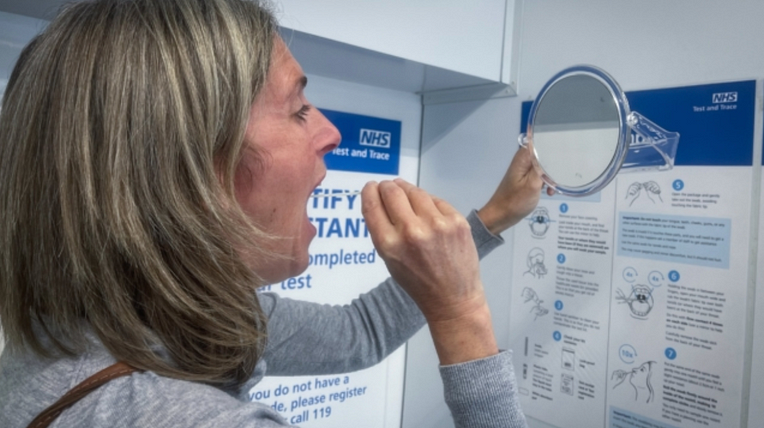Our views have changed a lot in the last two years.

The first person I knew who had Covid-19 was an old friend who had been traveling in Spain in mid-March 2020 and, upon returning to New York City, came down with a nasty, debilitating fever. She was “as sick as I’ve ever been,” and my friend, who is rarely ill, was bed-ridden for several days. “It was really scary there for a few days,” she said. “I didn’t think I was going to die. But I wasn’t sure I was ever going to get better.” I remember talking to her, at the end of that month, and being both happy she was better and terrified for her. Who knew what lay ahead of her? Was this really the end of it? Would her life ever be the same after she was infected? I found myself thinking of her, if I’m being honest, as if she’d been in a horrible car accident: It made me feel bad for not spending more time with her, you know, before. It felt, in a way, like the end of the world.
It no longer feels this way when I find out that someone I know has Covid. We’re in the midst of what seems like another wave, at least among the East Coast; cases are up 39 percent over the last two weeks. The BA.2 variant is now the primary variant in the United States, and it’s reportedly even more transmissible than the evil Omicron. Athletes are starting to test positive again. It’s up for considerable debate how bad this wave will be — it seems unlikely to approach that Omicron wave — and one should be careful about overreacting: There are still fewer cases right now than anytime since mid-July 2021, even with this increase. But still: You’d like the number to be going down, not up.
And anecdotally, you’re seeing more people test positive again. Just in the last few days, two of my close work associates have tested positive. A friend here in Athens just tested positive for the third time, which would seem difficult to do even if you are trying. But that speaks to just how different this period is than any other period of the pandemic and, I’d argue, helps explain why so few people are changing their daily routines or taking extra precautions despite the rising number of cases and the emergence of the new variant. (And why you saw people celebrating being able to take masks off on planes, perhaps unwisely.) After all: How concerned can you be about someone who has already had Covid three times?
My friends and colleagues who have tested positive for Covid-19 have not told me the news with the gravity that my friend two years ago told me. They’ve said it in passing, and only as a possible explanation for them being a day or two later on projects we’re working on together than they otherwise would be. (And one hasn’t stopped working at all.) They do not seem scared, or nervous, or even particularly concerned. They seem … well, they mostly just seem irritated. It’s an annoyance that gets in the way of everything else they have going on. You know they’re treating it? They’re treating it like jury duty. Covid? I don’t have time for Covid. I have work to do!
And thus: It’s difficult not to treat it similarly. I have not had Covid-19, and I don’t want it, but if I do get it, I’m fully vaccinated and boosted and have no pre-existing health or immune system issues. I like my odds. And most of my friends and colleagues are the same way. They’re not worried. They’re not frightened. They’re just annoyed. I wonder if that’s the next step in endemicity: Treating Covid-19 like a cold you can’t shake, or a relative who stays at your house a day or two long, or a termite infestation. If you’re vaccinated and boosted, Covid-19 is a pain in the ass. But that is, in many ways, the extent of it. This is obviously different for the unvaccinated: I have lost distant relatives and high school classmates to Covid-19, for this exact reason. The unvaccinated, as always, should be far more worried about Covid-19 waves than the rest of us. But for the vaccinated: It’s an irritant. But it’s no longer anything close to the end of the world.
When my friend told me two years ago she had Covid-19, I was so worried about her. Now when my friends tell me, I say I’m sorry, they say it’s no big deal, I make a joke, and they laugh. And then in a week, when it’s over, we can go have a drink and talk about it until moving onto something else. I know it stinks to have Covid-19 still around. I don’t want to get it either. But having Covid-19, for most people when you’re vaccinated and boosted and healthy, is like having jury duty. Jury duty sucks. But eventually, and pretty soon really, it’s over. There will still be those, overwhelmingly the unvaccinated, who will suffer from an uptick in cases. But the vaccinated are finding this new wave less grave, and less portentous, than every other one. This still feels like progress. This feels like another next step — a positive one.
Will Leitch writes multiple pieces a week for Medium. Make sure to follow him right here. He lives in Athens, Georgia, with his family and is the author of five books, including the Edgar-nominated novel How Lucky, now out from Harper Books. He also writes a free weekly newsletter that you might enjoy.